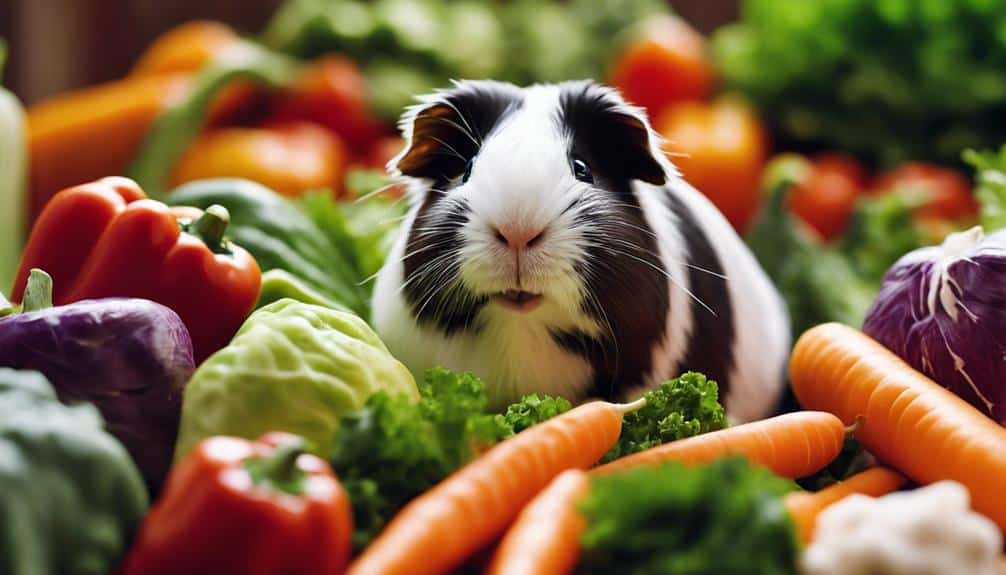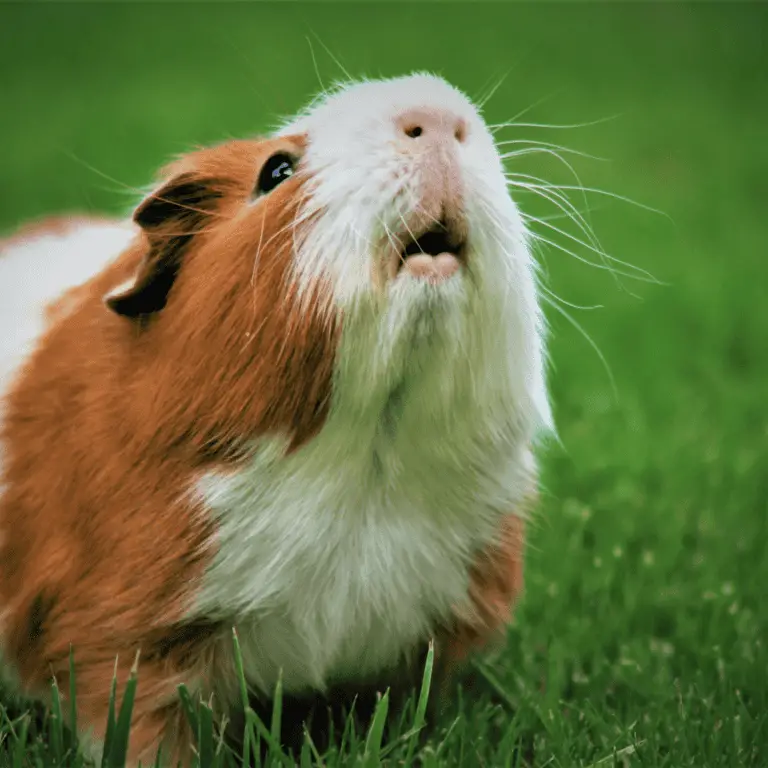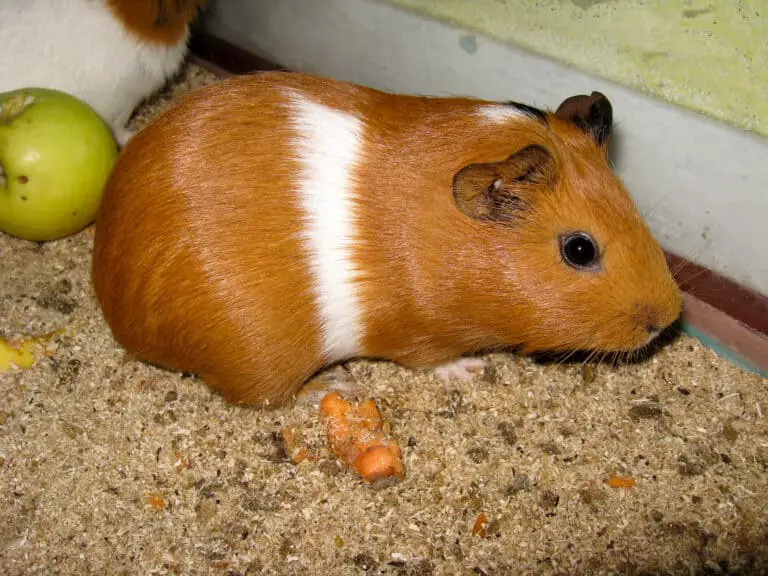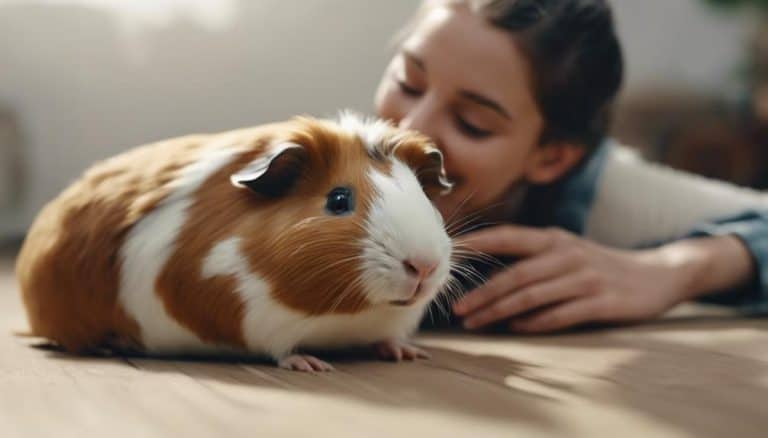How to Care for Guinea Pigs: Why Are Guinea Pigs Called Guinea Pigs?
Let's address the intriguing question of why guinea pigs are referred to in this manner.
The etymology behind their name holds a fascinating tale that connects continents and cultures. As we explore the origins of this curious moniker, we will uncover the historical journey that led to these adorable creatures being labeled as 'guinea pigs.'
The answer may surprise you and shed light on the rich tapestry of human-animal relationships.
Curious to learn more about the history behind these beloved pets?
Housing and Cage Setup
When setting up the housing and cage for guinea pigs, it's important to make sure that the enclosure provides adequate space and safety for these small pets. Female guinea pigs, also known as sows, have a unique aspect in their care requirements.
Pregnant sows need extra space to move around comfortably, especially as they approach giving birth to baby guinea pigs, also called pups. During pregnancy, a sow's pubic symphysis, a joint in the pelvis, softens to ease the birthing process. Hence, making sure the cage is spacious enough for the sow to move without restrictions is essential for her well-being and that of her babies.
Additionally, providing a quiet and secluded area within the cage can offer a stress-free environment for the pregnant sow to give birth and care for her newborn pups. Proper cage setup not only guarantees the safety of the sow and her babies but also promotes a healthy and comfortable living space for all guinea pigs in your care.
Proper Nutrition and Diet
To guarantee high-quality health and well-being for guinea pigs, it is essential to provide them with a diet rich in essential nutrients, with a particular focus on vitamin C to prevent scurvy. Guinea pigs require a balanced diet consisting of fresh hay, vegetables, fruits, and a small amount of pellets. Dark leafy greens like kale, spinach, and romaine lettuce are excellent sources of essential nutrients. While fruits such as bell peppers, strawberries, and oranges can be given as occasional treats, they should not exceed 10% of their diet. It is important for pet owners to make sure that fresh, clean water is always available to keep guinea pigs hydrated and maintain their overall health.
| Nutrient Source | Examples |
|---|---|
| Dark Leafy Greens | Kale, Spinach, Romaine Lettuce |
| Fruits | Bell Peppers, Strawberries, Oranges |
Socialization and Handling
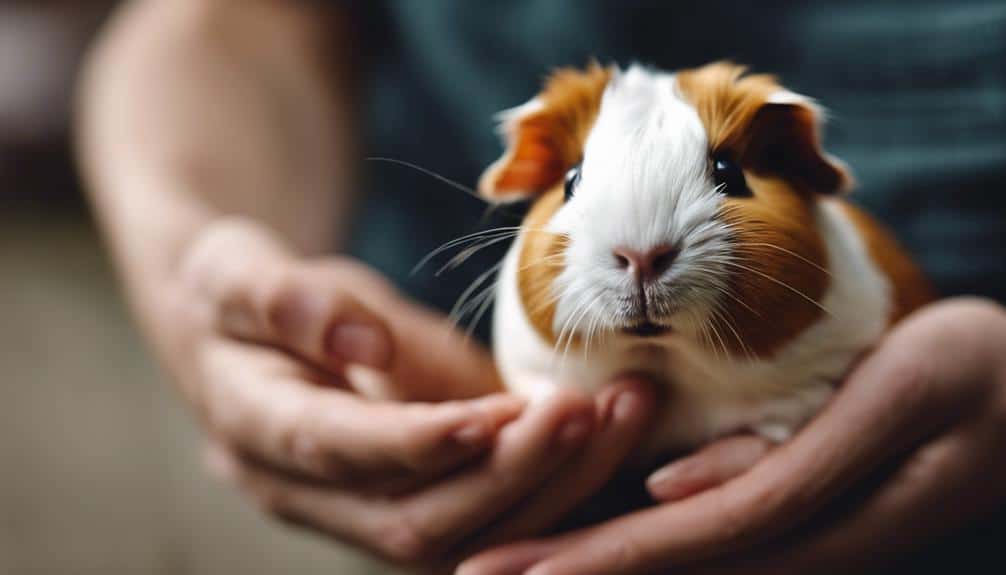
Guinea pigs, being social creatures that benefit from companionship, require proper socialization and handling to guarantee their mental well-being and happiness. When it comes to caring for these adorable pets, here are some key points to keep in mind:
- Companionship: Guinea pigs are happiest when they've a buddy or two to socialize with. Consider keeping them in pairs or small groups to prevent loneliness and make sure they thrive in a social environment.
- Trust Building: Proper socialization and gentle handling from a young age can help guinea pigs build trust with their owners. Handling them gently, supporting their bodies, and allowing them to get used to human interaction can go a long way in establishing a strong bond.
- Well-being: Socialization and handling are important for the mental well-being of guinea pigs. Regular, gentle handling not only helps them get accustomed to human touch but also enriches their lives, making them happier and more content pets.
Health and Wellness Care
Regular health check-ups play an important role in monitoring the weight, teeth, nails, and overall well-being of guinea pigs. Ensuring they receive a balanced diet rich in Vitamin C is essential to prevent common health issues like scurvy.
It's essential to maintain a clean living environment by regularly changing their bedding and cleaning their cage to prevent respiratory problems. Monitoring guinea pigs for signs of illness such as lethargy, loss of appetite, or unusual behaviors is critical for prompt intervention.
Offering plenty of exercise opportunities, such as a spacious enclosure and supervised playtime, contributes significantly to their overall health and wellness. By being proactive in their healthcare, providing nutritious meals, and keeping their environment clean, we can help guinea pigs thrive and lead happy, healthy lives.
The Origin of the Name

Have you ever wondered how guinea pigs got their unique name that sets them apart from other small pets?
The name 'guinea pigs' likely originated from Spanish explorers who brought them to Europe in the 1500s. The term 'guinea' in their name may have referred to their distant origins across the sea, speculated to be linked to ports in Guiana in South America or Guinea in Africa. Contrary to an earlier theory, the name isn't related to the English gold coin called the guinea.
Scientifically, guinea pigs belong to the family Caviidae, not Suidae, further emphasizing their unique classification. When these adorable creatures were first introduced to Europe, their unfamiliar appearance and behaviors sparked curiosity among people, leading to various theories about their origins. The name 'cavy' is also commonly used to refer to guinea pigs, adding another interesting facet to their nomenclature.
Conclusion
In caring for guinea pigs, we provide them with a safe home, nutritious food, love, and attention, regular health check-ups, and understanding their history.
Just as we guarantee their physical and emotional well-being, we honor their past by embracing their unique name.
By cherishing our guinea pigs and respecting their origins, we create a harmonious relationship based on care, respect, and appreciation for these delightful companions.

